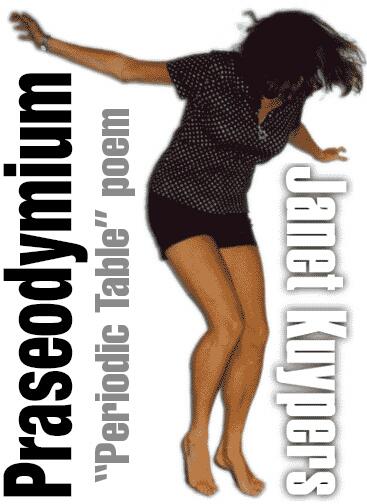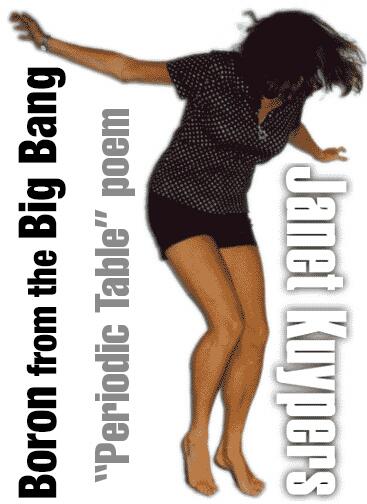Praseodymium
Janet Kuypers

from the “Periodic Table of Poetry” series (෧, Pr)
with elements of the poems “a Match” and “Rings Like Gravestones”
10/15/13
“I once set fire to my fingernail.
I wanted my finger to be a
human candle.”
She dropped another match into her glass.
The flame sizzled
in the drops of drink at the bottom.
In a corner booth, in this small club
the flame she aroused looked like
any other table light.
But if you looked too closely,
the light would scorch your soul,
would burn your eyes hollow.
That little piece of energy she held
could be so intense
that you needed that Praseodymium
in your eye glasses
just to look for another second.
The flame she aroused
looked like any other light,
but she knew she was destined
for the big screen,
complete with studio lighting
and projector lights
from the motion picture industry
broadcasting her to the world
through arc lights.
So she struck another match
at the side of the box.
Six or seven lay on the cocktail napkin,
ten more at the bottom of the glass.
She’d watch the reflection
of the gemstones in rings
across her fingertips
reflecting that flame.
The yellow-green cubic zirconia
on each of her fingers
bounced the light of the flame
in thousands of directions.
She likes gemstones
on her rings, she doesn’t bother
with big earrings
or expensive necklaces —
she looks at her hands
because she likes rings;
she can’t help it.
A few of those peridot-inspired stones
were gifts from a loved one,
because they knew they were dying soon.
So she becomes the only one
treating these rings live gravestones,
even when no one has even died yet.
And the person that gave her these rings,
she knows they want to be cremated.
Just then you could see the flame
dancing at her fingertip.
She shook the match. She dropped it in her glass.


